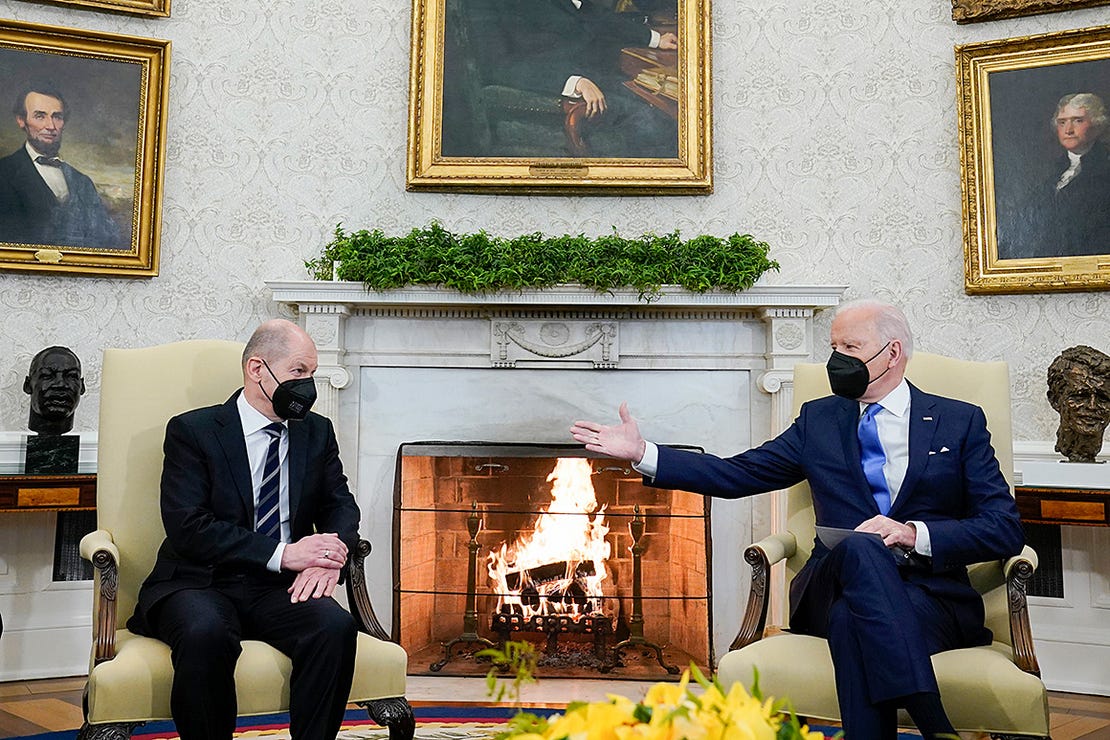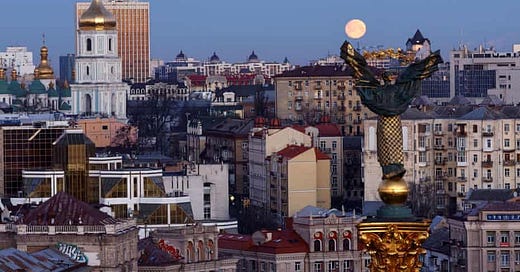US media is bewildered by Putin's troop pullback.
'Aren't they supposed to invade Ukraine tomorrow?'
A simplistic refusal to recognize the complex roots of the tensions in the region undermines the ability of negotiators to reach a peaceful resolution.— Bernie Sanders
This morning’s Boston Globe reports: “Russia obliquely cooperative, mood of Ukraine crisis changes.”
First of all, what the hell does, obliquely cooperative mean? Is that like, she’s obliquely pregnant? Secondly, does a crisis really have a “mood”?
This from today’s LA Times: “The Putin-Lavrov meeting and the military spokesman’s statements did not diminish fears in Kyiv or among NATO leaders that war is no longer on the table.”
Talk about oblique. “…did not diminish fears”? Who writes like this? Does that mean that Russia’s announced troop withdrawal increased fears? Kept fears where they were? And is there really a fear now among NATO leaders that war is “no longer on the table”? That peace will break out?
That sounds to me like an unsolicited admission of bad intentions.
But the confusion in the media is merely a matter of bad writing. It’s mainly a reflection of the confusion and chaos among US foreign policymakers and the conflicted responses to their manufactured crisis in Ukraine.
Is a Russian invasion “imminent”? Is it coming on February 16th? (That’s tomorrow.) During the Olympics? After the Olympics? From the north? The west? After a “false flag”? Are we pulling our diplomats from Ukraine? Moving our embassy from Kyiv to Lviv? Or what???
US/NATO allies have also been in a world of bewilderment since Biden pushed them into harm’s way by stationing more US troops on their soil, demanding that they supply “lethal aid” to Ukraine, and threatening to punish Putin by cutting off Europe’s supply of natural gas.
Biden has tried his best to appease his critics on the right by striking a strongman pose on Ukraine, hoping to credit his aggressiveness for Putin’s retreat, when and if it comes. I’m skeptical that anyone is seriously buying that narrative.
If Biden really wants to play the peace broker, he will have to take Russia’s interests seriously. Up until now he and Sec. Blinken have treated Putin’s demands about NATO troops and weapons on his borders as non-negotiables.
One of the few sane voices in the Senate has been Bernie Sanders’.
It is good to know some history. When Ukraine became independent after the Soviet Union collapsed in 1991, Russian leaders made clear their concerns about the prospect of former Soviet states becoming part of NATO and positioning hostile military forces along Russia’s border. U.S. officials recognized these concerns as legitimate at the time. — The Nation
It’s pretty obvious that Putin’s partial pull-back decision was made after his emergency meetings with German Chancellor Olaf Scholz and French President Emanuel Macron and not out of fear of military retaliation or sanctions by the US. If any western leaders are to be credited with the pullback, it will be them.

Germany, Russia’s largest trading partner in Europe, had the most to lose — along with Ukraine — if full-scale war breaks out, and neither Scholz nor Putin have any interest in blowing up the Nord Stream 2 gas pipeline which Biden has threatened to do. Ukraine’s leaders are worried more about domestic panic and political/economic destabilization than they are about a Russian invasion.
Biden took a gamble that a military faceoff with Russia over Ukraine would improve his approval ratings at home (it didn’t) and help the Democrats in the upcoming midterm elections (I doubt it).
On his right are the serious congressional war hawks who want to move beyond Biden’s posturing and towards all-out war.
There are calls in Congress for a US-funded insurgency in Ukraine to mirror the one led by Washington that helped eject Moscow from Afghanistan in the 1980s and hastened the fall of the Soviet Union. Russia would respond to such a campaign -- and has the capacity to disrupt US goals and diplomacy worldwide
It should be clear by now that there is no military solution to this superpower confrontation. You would think that they both understood this after their disastrous experiences in Afghanistan.
But now an uneasy Europe waits to see how the US will respond to Russia’s move.



